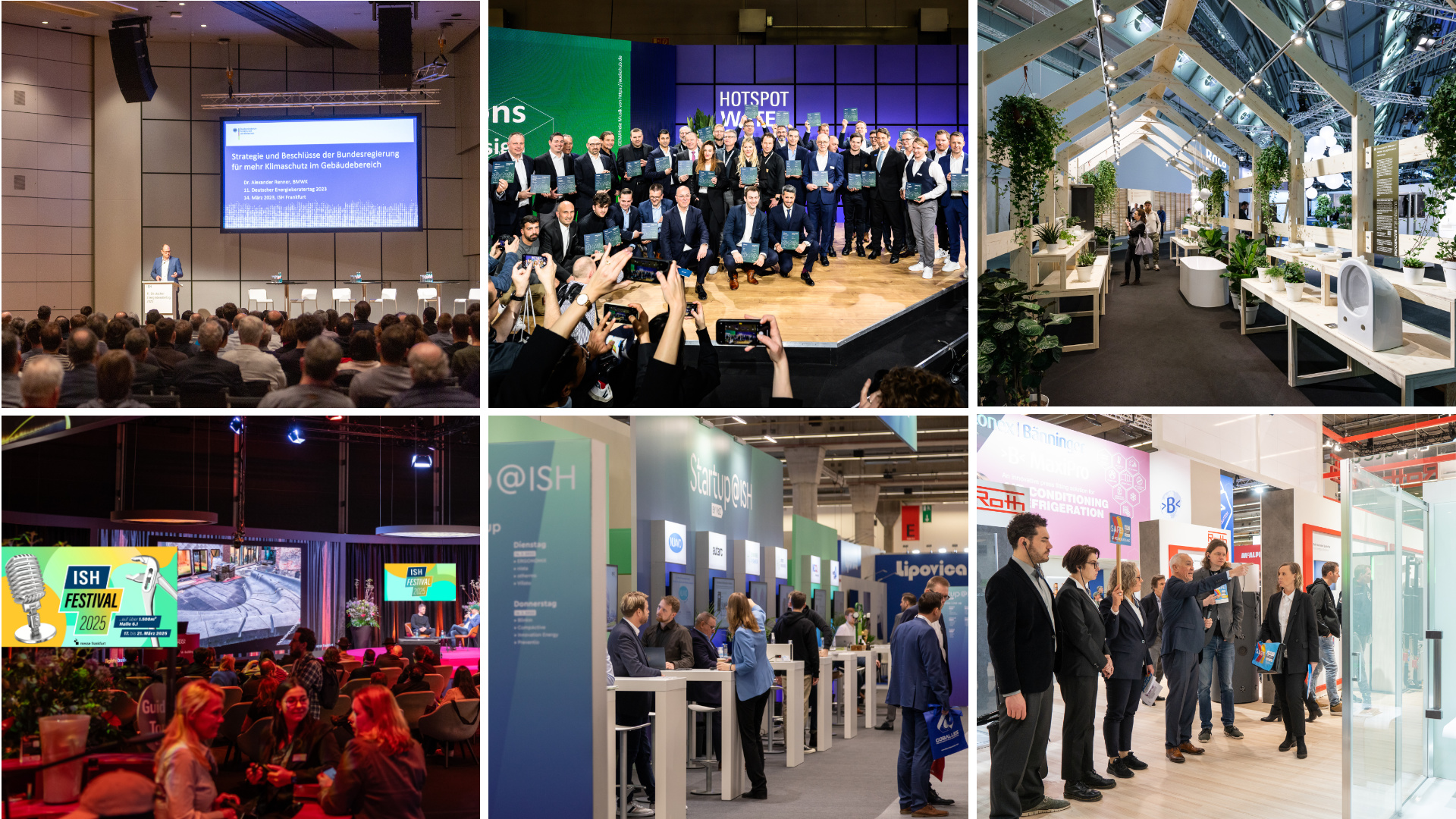Verein Des Hygiene-Instituts Des Ruhrgebiets e.V.

Adresse
Verein Des Hygiene-Instituts Des Ruhrgebiets e.V.
Rotthauser Str. 21
45879 Gelsenkirchen
Deutschland
Telefon+49 209 92420
Entdecken Sie mehr von uns
Folgen Sie uns auf
Über uns
Wir sind das Hygiene-Institut des Ruhrgebiets Institut für Umwelthygiene und Toxikologie
Im Herzen des Ruhrgebiets und weltweit aktiv
In unserer dichtbesiedelten Region mit mehr als 5 Millionen Menschen stellt Hygiene eine echte Herausforderung dar. Trinkwasserversorgung und Abwasserreinigung, Abfallentsorgung und Altlasten, Produktprüfungen und Produktrecycling: Das alles erfordert unsere höchste Aufmerksamkeit. Im Ruhrgebiet, in Europa und auch weltweit.
Unsere Geschichte ist unser Auftrag
Die Gründung des Hygiene-Instituts zu Beginn des 20. Jahrhunderts geht auf Robert Koch zurück. Als im Spätsommer 1901 eine Typhusepidemie in Gelsenkirchen viele Opfer forderte, verlangte Koch drastische Maßnahmen zur Verbesserung und Überwachung der Wasserqualität. Bereits
im Mai 1902 nahm das neu gegründete Hygiene-Institut unter dem Dach eines unabhängigen Trägervereins seine Arbeit auf.
Kompetent und unabhängig
Das Hygiene-Institut mit seiner idealen Kombination aus Erfahrung, Sachverstand und Unabhängigkeit zählt zu den größten und modernsten Institutionen seiner Art in Europa.
Vorbeugender Umwelt- und Gesundheitsschutz
Die Schwerpunkte unserer Arbeit sind die kritischen (Umwelt-) Themen unserer Zeit, die für unsere moderne Gesellschaft maßgeblich sind. Umweltschutz und gesundheitlicher Verbraucherschutz sind vorrangige Arbeitsgebiete unseres Instituts. Wir prüfen regelmäßig die natürlichen Ressourcen (Wasser, Boden, Luft); wir spüren Bauschadstoffe und sonstige Verunreinigungen auf; wir testen Produkte vor ihrer Markteinführung, um Beeinträchtigungen des Trinkwassers oder der Lebensmittel zu verhindern und die Gesundheit der Menschen zu schützen.
Unsere Produktgruppen
Unsere Anwendungsbereiche / Lösungen
Downloads
Dokumente
Keywords
- Material- und Hygieneprüfungen; Material and Hygiene Testing
- Hygienische Gebäudetechnik; Hygienic Building Technology
- Zertifizierungsstelle; Certification Body
- Wasserhygienische Materialprüfungen; Water Hygiene Material Testing
Unsere Produkte
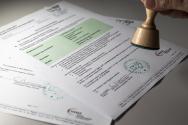
Zertifizierung von Produkten/Materialien für den Trinkwasserkontakt HyCert
Unsere Leistung als Zertifizierer
Dokumentieren Sie die trinkwasserhygienische Eignung Ihres Produktes mit einem Zertifikat der HyCert. Vertrauen Sie auf unser über Jahrzehnte gewachsenes Expertenwissen. Unsere Mitarbeiter*innen begleiten Sie gerne durch den gesamten Zertifizierungsprozess – von der Antragstellung bis zur Ausstellung des Zertifikates.
Unsere Zertifizierungsprogramme basieren auf der Empfehlung des Umweltbundesamtes (UBA) zur Konformitätsbestätigung der trinkwasserhygienischen Eignung von Produkten.
Wir sind eine durch die Deutsche Akkreditierungsstelle (DAkkS) akkreditierte Zertifizierungsstelle. Um die im Rahmen der Zertifizierung notwendigen Begutachtungen weltweit durchzuführen, arbeitet HyCert mit namhaften externen Inspektionsstellen zusammen, die bereits langjährige Erfahrungen im Bereich Auditierung und Probenahme haben. Selbstverständlich werden auch institutseigene Mitarbeiter*innen Begutachtungen durchführen.
Grundlegende Informationen zu den Kosten einer Zertifizierung sowie eine detaillierte Kostenabschätzung erhalten Sie nach Kenntnis des Umfangs der Zertifizierung.
Wenn Sie Fragen zur Zertifizierung Ihrer Trinkwasser-Produkte haben, stehen wir Ihnen gerne zur Verfügung.
Möchten Sie mit der Zertifizierung Ihres Produktes beginnen, laden Sie den Zertifizierungsantrag herunter, füllen ihn aus und senden ihn an uns. Nach Prüfung des Antrags entscheidet HyCert, ob das Produkt zertifiziert werden kann, und sendet Ihnen anschließend den Zertifizierungsvertrag zur Unterzeichnung sowie alle notwendigen Unterlagen.
Wir freuen uns auf die Zusammenarbeit!
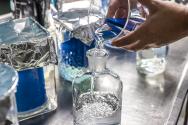
Prüfung von Produkten/Materialien für den Trinkwasserkontakt
Wasserhygienische Materialprüfungen für den Trinkwasserkontakt
Die Qualität von Trinkwasser wird in Europa durch die Richtlinie (EU) 2020/2184 und in Deutschland durch die Trinkwasserverordnung (TrinkwV) geregelt. Diese legt nicht nur Anforderungen an das Trinkwasser selbst fest, sondern auch an die Werkstoffe und Materialien, die bei der Gewinnung, Weiterleitung und Speicherung von Trinkwasser zum Einsatz kommen. § 14 der TrinkwV fordert, dass diese Materialien:
- die menschliche Gesundheit nicht beeinträchtigen,
- den Geruch/Geschmack des Trinkwassers nicht nachteilig verändern,
- das Wachstum von Mikroorganismen nicht fördern,
- möglichst keine Stoffe ins Trinkwasser abgeben.
Die Überprüfung dieser Anforderungen erfolgt durch Migrationsprüfungen und mikrobiologische Tests gemäß den DVGW-Arbeitsblättern und den Leitlinien des Umweltbundesamtes. Dabei wird unter anderem die Förderung mikrobiellen Bewuchses (DVGW W 270, DIN EN 16421) und die Migrationsrate von Stoffen ins Kontaktwasser untersucht.
Akkreditiertes Prüflabor
Das Hygiene-Institut des Ruhrgebiets ist nach DIN EN ISO 17025:2018 akkreditiert und spezialisiert auf trinkwasserhygienische Prüfungen. Unsere Prüfberichte und Zertifikate werden von anerkannten Zertifizierungsstellen wie HyCert akzeptiert.
Unser Leistungsspektrum
Wir führen trinkwasserhygienische Eignungsprüfungen an nichtmetallischen Werkstoffen durch, darunter Kunststoffe, Elastomere, Silikone, Lackierungen, Beschichtungen, Schmierstoffe sowie zementgebundene Werkstoffe und Emaille/Keramik. Zusätzlich bieten wir Prüfungen im Rahmen der werkseigenen Produktionskontrolle (WPK) für die Konformitätsbestätigung der trinkwasserhygienischen Eignung von Produkten an.
Unsere Prüfgrundlagen
- Bewertungsgrundlage für Emails und keramische Werkstoffe
- KTW-BWGL (Kunststoffe, Beschichtungen, Schmierstoffe, Elastomere, Silikone)
- Silikon-Übergangsempfehlung, TPE-Übergangsempfehlung
- Elastomerleitlinie
- DIN EN 12873-1 / DIN EN 12873-2, DIN EN 1420, DIN EN 1622
- DVGW Arbeitsblatt W 347, OENORM B 5014-1
- Grundwasserhygienische Prüfungen (CEN/TS 16637-2:2014-11, DIN EN 1963)
Beratungs- und Fortbildungsservice
Wir bieten unseren Kunden fortlaufende Beratung und Unterstützung bei der Umsetzung der Trinkwasserhygienestandards. Bei speziellen Fragen zur Wasserhygiene und Materialprüfung stehen wir Ihnen gerne zur Verfügung.
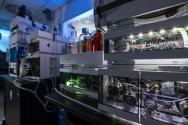
Weitere Leistungen, Prüfungen & Expertise
Weitere Informationen zu unserem umfangreichen Leistungsspektrum finden Sie auf unserer Website. Entdecken Sie die verschiedenen Prüf- und Zertifizierungsdienstleistungen, die wir für Sie anbieten, und erfahren Sie mehr über unsere Expertise in der Umwelthygiene und Toxikologie.
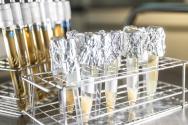
Mikrobiologische Material- und Hygieneprüfungen
Mikrobiologische Prüfung für den Trinkwasserkontakt
In Europa wird die Qualität von Wasser für den menschlichen Gebrauch durch die EU-Richtlinie 2020/2184 und in Deutschland durch die Trinkwasserverordnung (TrinkwV) geregelt. Diese Vorschriften betreffen nicht nur das Trinkwasser selbst, sondern auch die Materialien und Werkstoffe, die mit Trinkwasser in Kontakt kommen. § 14 der TrinkwV fordert, dass diese Materialien:
- die Gesundheit nicht beeinträchtigen,
- den Geschmack und Geruch des Wassers nicht negativ beeinflussen,
- das Wachstum von Mikroorganismen nicht fördern,
- möglichst keine Stoffe an das Wasser abgeben.
Die Einhaltung dieser Anforderungen wird durch Prüfungen gemäß den Leitlinien des Umweltbundesamtes und DVGW-Arbeitsblättern sichergestellt. Dies umfasst sowohl Tests zum mikrobiellen Bewuchs (DVGW W 270, DIN EN 16421) als auch Migrationsprüfungen, bei denen die festgelegten Parameter im Kontaktwasser untersucht werden.
Akkreditiertes Prüflabor
Das Hygiene-Institut des Ruhrgebiets ist ein nach DIN EN ISO 17025:2018 akkreditiertes Labor für trinkwasserhygienische Prüfungen. Wir führen diese Prüfungen gemäß den anerkannten Bewertungsgrundlagen durch, und die resultierenden Prüfberichte werden von Zertifizierungsstellen wie HyCert anerkannt.
Unser Leistungsspektrum
Wir bieten trinkwasserhygienische Eignungsprüfungen für nichtmetallische Werkstoffe, einschließlich Kunststoffe, Elastomere, Silikone, Beschichtungen und zementgebundene Materialien. Unsere Prüfungen erfolgen nach relevanten Normen wie:
- DIN EN 16421 (KTW-BWGL)
- DVGW Arbeitsblatt W 270
Zusätzlich führen wir mikrobiologische Materialprüfungen und Hygieneprüfungen durch und bieten einen umfassenden Beratungs- und Fortbildungsservice.
Mikrobiologische Materialprüfungen
- Antimikrobielle Ausrüstung / Verstoffwechselbarkeit (ISO 22196, JIS 2801, ASTM 2180)
- Prüfung nach DIN EN ISO 846
- Prüfung von Reinigungs- und Desinfektionsmaßnahmen
- Mikrobiologische Untersuchungen von Rohstoffen, Zwischen- und Endprodukten
Hygieneprüfungen und Beratungsservice
Für Unternehmen, die gesetzlich oder freiwillig entsprechende Leistungen benötigen, bieten wir:
- Betriebsbesichtigungen
- Hygieneschulungen
- Hygieneplanung
Wir unterstützen Sie bei der Planung und Umsetzung von Hygienekontrollen und schulen Ihre Mitarbeiter vor Ort. Bei speziellen Fragestellungen stehen wir Ihnen gerne beratend zur Seite.
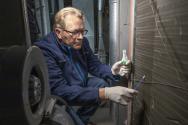
Hygienische Gebäudetechnik
Einleitung zum Thema Raumlufttechnischer Anlagen (RLT)
Die Raumlufttechnischen Anlagen (RLT) beeinflussen das Arbeits- und Wohnumfeld von Millionen Menschen weltweit. Eine fachgerecht geplante, ausgeführte und gewartete RLT-Anlage trägt positiv zur Gesundheit, zum Wohlbefinden und zur Leistungsfähigkeit der Raumnutzer bei. Doch eine unsachgemäße Planung und mangelhafte Wartung können das Gegenteil bewirken und gesundheitliche Risiken mit sich bringen.
Unsere Expertise für Ihre RLT-Anlagen
Mit jahrelanger Erfahrung bieten wir Ihnen eine umfassende Beratung und Unterstützung bei der Planung, Ausführung, Instandhaltung und Sanierung von RLT-Anlagen. Unser Institut ist auf alle relevanten Prüfungen und Dienstleistungen spezialisiert:
- Hygiene-Erstinspektionen und Kontrollinspektionen nach VDI 6022 Blatt 1
- Hygiene-Konformitätsprüfungen von RLT-Anlagen, -Geräten und Rückkühlwerken
- Materialprüfungen gemäß DIN EN ISO 846
- Messungen von Raumluftqualität (mikrobiologischer Parameter)
- Mikrobiologische Messungen von Koloniezahlen, Legionellen und anderen Erregern in verschiedenen Wässern
- Analytik von Proben aus Befeuchter-, Kühlwasser und Oberflächenproben
- Konformitätsprüfungen nach technischen Regelwerken der Lüftungs- und Klimatechnik
Unser Service für Unternehmen
Für Unternehmen, die durch gesetzliche Anforderungen oder auf freiwilliger Basis Prüfungen und Inspektionen benötigen, bieten wir maßgeschneiderte Lösungen:
- Hygieneinspektionen nach VDI 6022 Blatt 1: Diese regelmäßigen Inspektionen verhindern gesundheitliche Risiken, die von unsachgemäß gewarteten RLT-Anlagen ausgehen können. Wir übernehmen die unabhängige Begutachtung Ihrer RLT-Anlage und klimatisierten Räume, einschließlich mikrobiologischer Untersuchungen und Messungen von Klimaparametern wie Temperatur, Luftfeuchte und Luftgeschwindigkeit.
- Hygiene-Erstinspektion: Bei Neubauten von RLT-Anlagen führen wir für Sie eine unabhängige Hygiene-Erstinspektion gemäß VDI 6022 Blatt 1 durch.
Warum regelmäßige Inspektionen wichtig sind
Die Hygieneinspektionen umfassen eine detaillierte Überprüfung von Filtern, Kanälen und Wärmetauscher sowie von Befeuchter- und Zuspeisewasser. Auch die Luftqualität in den klimatisierten Räumen wird analysiert, um eine sichere Umgebung zu gewährleisten. Am Ende der Untersuchung erhalten Sie ein Gutachten, das den hygienisch-technischen Zustand Ihrer RLT-Anlage dokumentiert.
Fortlaufende Beratung und Weiterbildung
Nutzen Sie unser Angebot zur fortlaufenden Beratung und den steigenden Anforderungen an Fortbildung und Weiterbildung in der Raumlufttechnik. Wir stehen Ihnen jederzeit mit Fachwissen und praktischen Lösungen zur Seite, um die Qualität und Sicherheit Ihrer RLT-Anlagen langfristig zu gewährleisten.
Lassen Sie uns gemeinsam dafür sorgen, dass Ihre RLT-Anlage nicht nur effizient, sondern auch hygienisch einwandfrei arbeitet!
Unsere Ansprechpersonen
Dr. Michael Tolzmann
Abteilungsleiter*in










